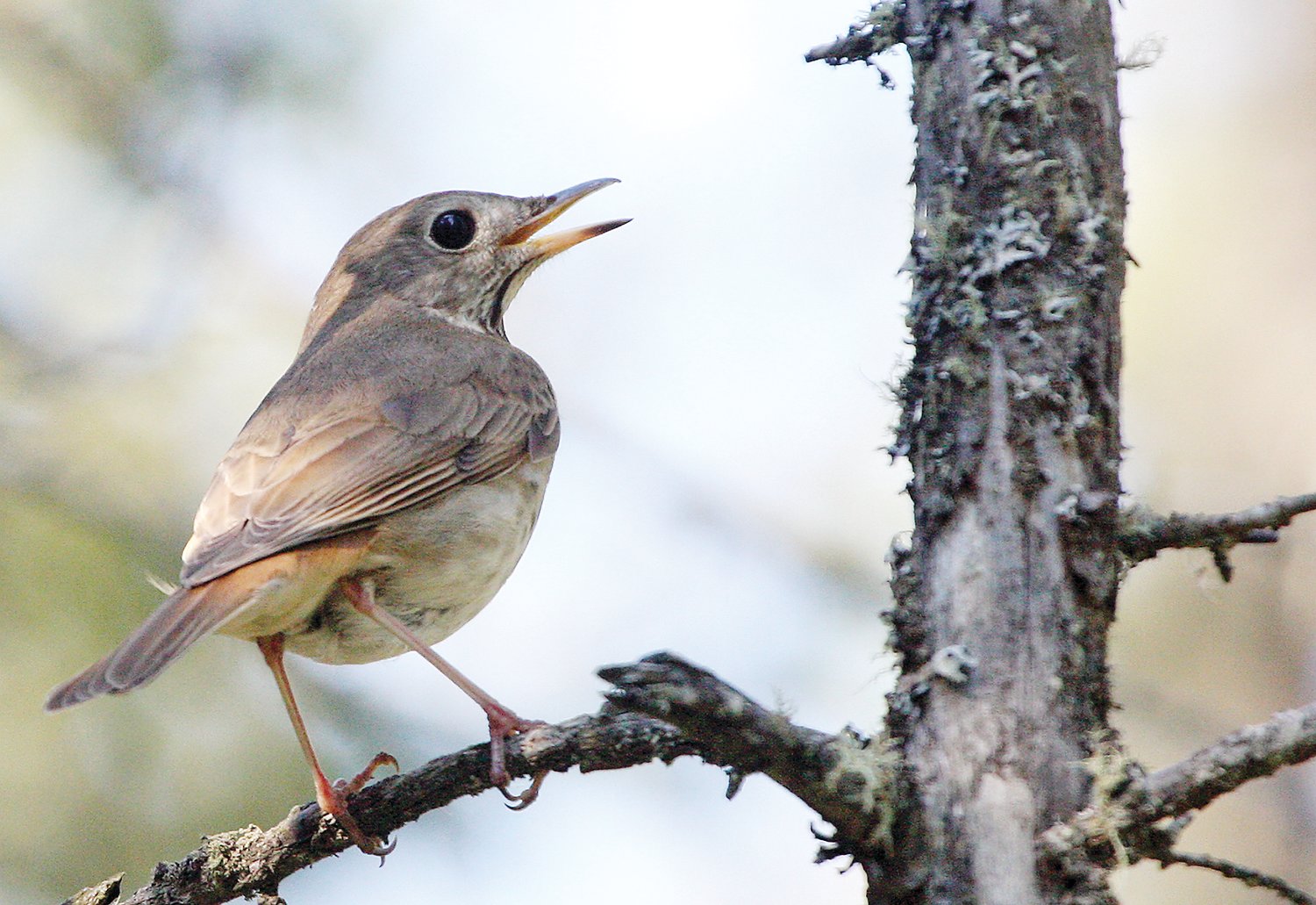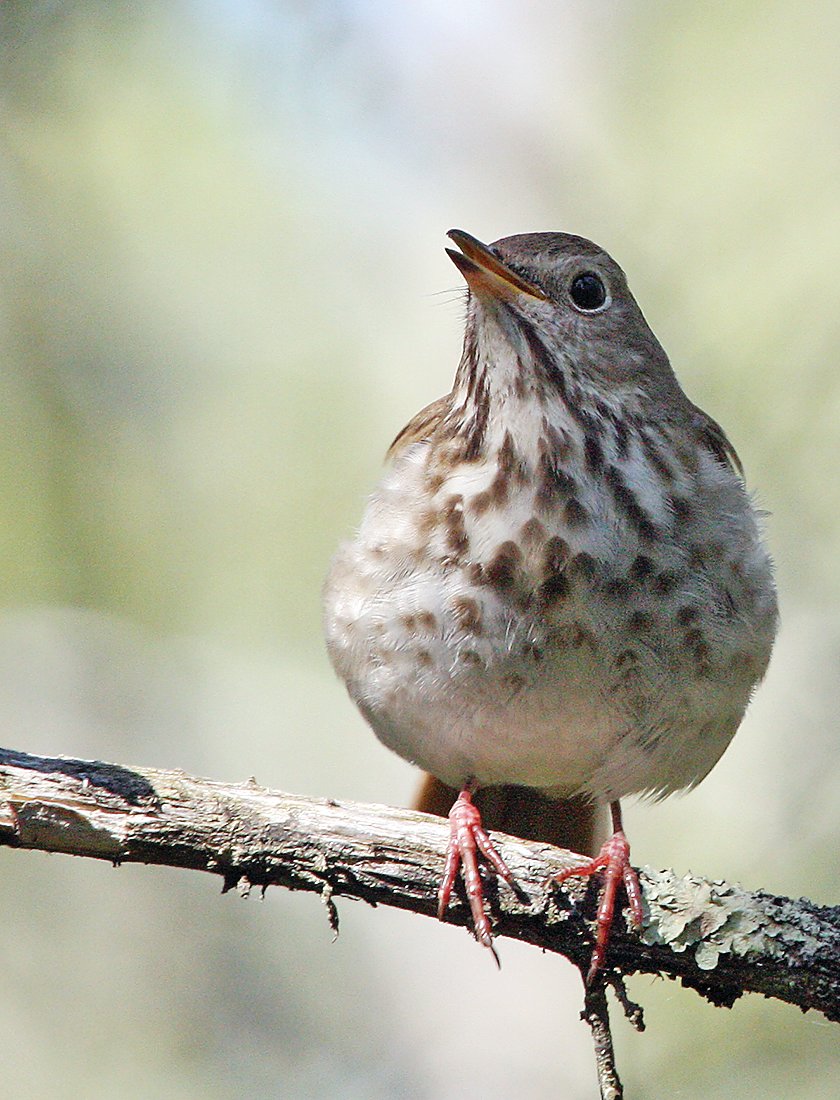Support the Timberjay by making a donation.
A song like no other
For centuries, humans have marveled at the rapturous voice of the hermit thrush
For me, the turn of the calendar to August generally marks the end of the season of bird song. With summer warmth beginning to ebb and the days growing noticeably shorter, the pace of life is …
This item is available in full to subscribers.
Attention subscribers
To continue reading, you will need to either log in to your subscriber account, or purchase a new subscription.
If you are a current print subscriber, you can set up a free website account and connect your subscription to it by clicking here.
If you are a digital subscriber with an active, online-only subscription then you already have an account here. Just reset your password if you've not yet logged in to your account on this new site.
Otherwise, click here to view your options for subscribing.
Please log in to continue |
A song like no other
For centuries, humans have marveled at the rapturous voice of the hermit thrush
For me, the turn of the calendar to August generally marks the end of the season of bird song. With summer warmth beginning to ebb and the days growing noticeably shorter, the pace of life is quickening for birds in our northern forest. The vast majority of birds, that will soon head south, are often already beginning their transition, forming small, mixed flocks in the forest that are focused on fattening up for the long journey ahead.
Most birds have long since abandoned the territoriality of the breeding season, and so have little need to advertise their borders, which is among the primary purposes of bird song.
There is, however, one exception this time of year, and for that I am eternally grateful. Come early morning, or evening, or even on a cool and overcast afternoon, the song of the hermit thrush can still at least occasionally be heard reverberating through the red and white pine that line the edge of our ridge overlooking the Lost Lake Swamp.
From the perspective of a human, it’s easy to understand why. If any of us could open our mouths and pour forth the ethereal beauty captured in the song of a hermit thrush, I’m sure we would waste no opportunity to display our talents.
I imagine even the hermit thrush must surprise himself most mornings with the recognition that he has been gifted with one of the most stunningly beautiful songs in the bird world.
The hermit thrush has awed us humans for centuries and elicited some of the most rapturous writings from observers who have been moved to wonder at their remarkable song.
“Listening to this strain on the lone mountain, with the full moon just rounded on the horizon, the pomp of your cities and the pride of your civilization seems trivial and cheap,” wrote the American naturalist John Burroughs, in the late 1800s.
While all thrushes—a sizable family of birds which includes the American robin— are accomplished singers, the hermit thrush stands out even among this illustrious group.
Its song is not only ethereal, it is complex, comprised most often of four primary phrases, each subtly different, with the final phrase a rising, yet simultaneously softening, crescendo that seems to trail away into the mist.
It is no surprise that humans have long associated the song with the heavens, as if it were sung by an angel. Burroughs described it as “rising pure and serene, as if a spirit from some remote height were slowly chanting a divine accompaniment. This song appeals to the sentiment of the beautiful in me, and suggests a serene religious beatitude as no other sound in nature does.”
Ben Mirin, a naturalist and author who travels the world recording and utilizing bird song in music notes that the beauty of the hermit thrush song is tied, in part, to the nature of the surrounding forest and reflects the feeling that so many of us share of the deep woods as hallowed ground.
“If you hear a hermit thrush ten feet away from you, it’s a nice sound, to be sure, but the sacred beauty of a hermit thrush call really comes from the way it bounces around the forest,” said Mirin. “That gives it an irreplaceable musical quality that brings to bear the voice of the land as well as the voice of the bird. Having that in your mix, as a producer, it’s like, ‘Oh my god, I’m not really an artist. I’m a messenger.’”
Here in the North Country, that message won’t be heard much longer, at least not this summer. Like all good things, this one will soon come to end, marking the culmination of another season of song.










